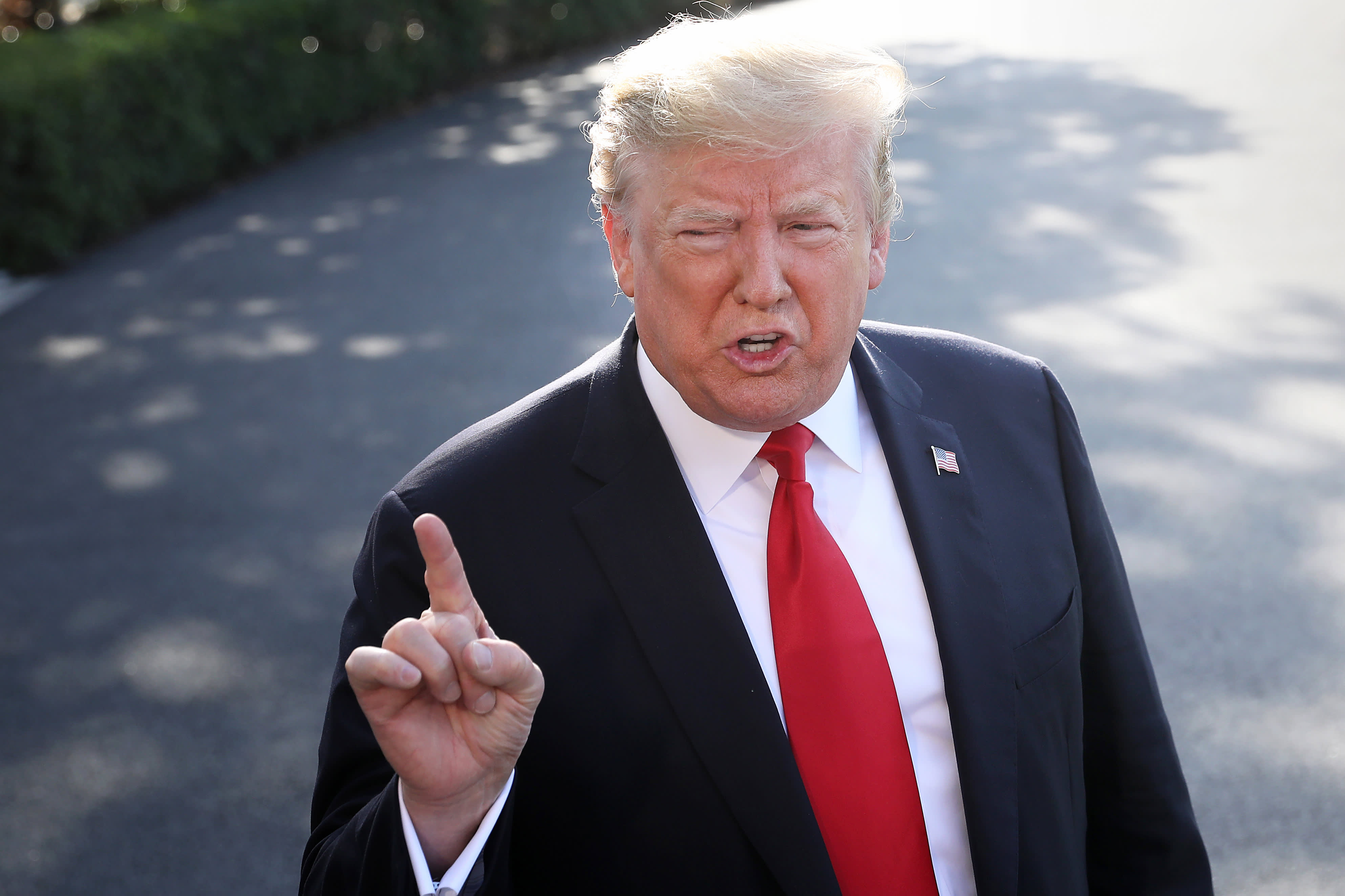
The momentum that supporters have tried to build for a new North American trade deal has run into some Trump turbulence.
The Trump administration had taken steps in recent weeks to work with Democratic and Republican lawmakers to address concerns about the proposed United States-Mexico-Canada agreement.
Then President Donald Trump made his threat this past week of a 5% tariff on Mexican imports unless America's southern neighbor cracked down on Central American migrants trying to cross the U.S. border.
His recent decision to remove U.S. tariffs on steel and aluminum imports from Canada and Mexico had appeased mostly Republicans who were using their trade vote as leverage to do away with those penalties.
The administration also had committed to meeting with a group of House Democrats to allay their concerns. That gesture created good will, and as House Speaker Nancy Pelosi, D-Calif., described it, put Democrats "on a path to yes."
Now it's unclear where that path may lead.
Influential business groups fear that Trump's threat against Mexico could derail the proposed trade agreement.
"The last thing we want to do is put that landmark deal — and the 2 million manufacturing jobs that depend on North American trade — in jeopardy," said Jay Timmons, president and CEO of the National Association of Manufacturers.
The U.S. Chamber of Commerce said it was considering legal action to block the tariffs from going into effect.
Some GOP senators are rankled, too, most notably Charles Grassley of Iowa, chairman of the Senate Finance Committee.
"This is a misuse of presidential tariff authority and counter to congressional intent," Grassley said.
Congressional aides from both parties said that it's too soon to say whether Trump's proposal will derail the agreement. But it does make it harder for lawmakers to assess how the agreement would improve the economic landscape if the tariffs on Mexico go into place.
Democrats seem mostly concerned with other breaking developments.
Hours before Trump announced his tariff plan, his administration tried to set up the agreement for a possible congressional vote before the August recess. The administration completed the formal steps necessary to start the clock for submitting legislation to Congress.
Pelosi said that was "not a positive step" and "indicates a lack of knowledge on the part of the administration on the policy and process to pass a trade agreement."
Democrats want to strengthen enforcement of labor and environmental standards in Mexico. They have pushed for Mexico to change labor laws that have encouraged wages as low as $1 or $2 per hour at some plants, giving U.S. companies a strong incentive to move operations south of the U.S.-Mexico border.
Mexico lawmakers have approved a law that requires secret-ballot union votes and proof of workers' consent for contracts. Democrats in Washington want to ensure follow-through, and Pelosi still holds the final say in determining when, or if, the agreement comes up for a vote.
Pelosi also joined several Republican senators in slamming Trump's tariff threat, saying it is "not rooted in wise trade policy but has more to do with bad immigration policy on his part."
"Yet again, the president is sowing chaos over the border instead of delivering solutions for American workers and for American consumers," Pelosi said.
White House counselor Kellyanne Conway said the tariffs should not jeopardize passage of the trade pact and that the president simply wants Mexico to do more to stem the flow of migrants.
She said the White House is confident it would pass the Democratic-run House, if Pelosi put it to a vote.
Trump said he had the authority to impose a 5% levy on all goods imported from Mexico and pledged to increase those duties to as high as 25% if Mexico did not dramatically to reduce the number of migrants crossing the border.
Investors have responded negatively, with the Dow Jones industrial average closing Friday down roughly 355 points, or 1.4%.
Still, Conway told reporters that "tariffs are a good way to get a trading partner's attention, and apparently it did."
Mexico's foreign relations secretary, Marcelo Ebrard, announced that he and Secretary of State Mike Pompeo would lead talks Wednesday in Washington, a move seen as potentially easing tensions and avoiding retaliatory tariffs.
Both Mexico and Canada are moving ahead with steps toward ratifying the trade agreement.
Canada's foreign minister, Chrystia Freeland, indicated that it's up to the U.S. and Mexico to work out their dispute. "This is a bilateral issue," she said.
from Top News & Analysis https://cnb.cx/2ELzxl6via IFTTT
No comments:
Post a Comment